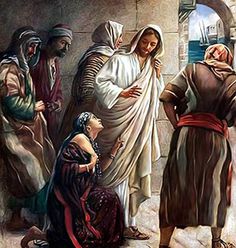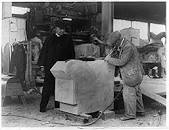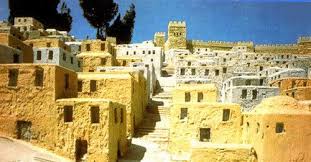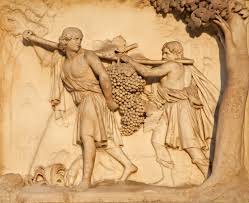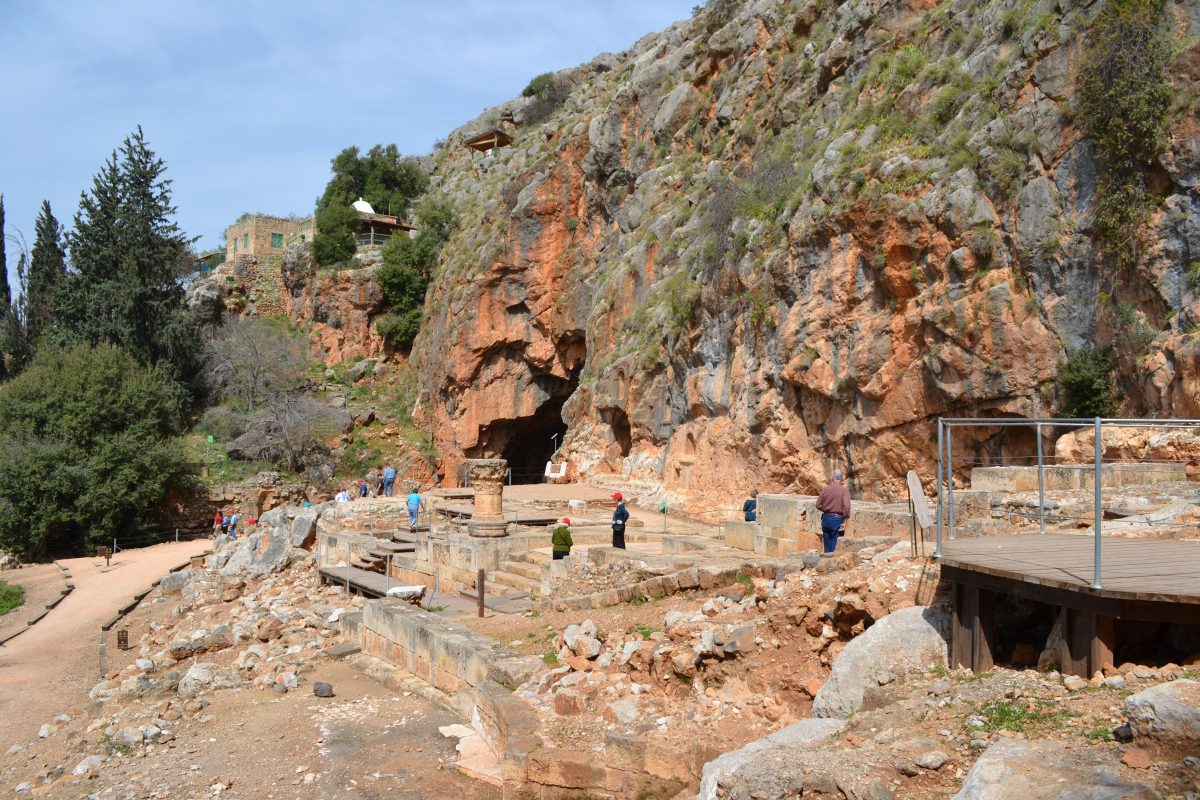Background Passage: Matthew 15:21-28; Mark 7:24-30
It had been an emotionally brutal and tiring time in Jesus’ life. Opponents within the religious hierarchy grew more brazen and belligerent in their handling of Jesus. His popularity challenged their reputations and status with the people of Israel.
Jesus’ disciples struggled with their identity and understanding of his teachings. Inconsistent in their faith. Unsure of the nature of his “kingdom of heaven.” The people who followed him seemed more interested in his miracles than his message.
As he pressed through these things, Jesus received word that John the Baptist, his cousin and the man who so beautifully set the stage for his ministry, had been beheaded at the order of the regional governor. A foreboding reminder of the inevitable outcome of his own life.
Jesus bore the weight of his responsibilities, emotionally and physically spent by the constant demands on his spirit and his time. Jesus needed to get away with his disciples to recharge his batteries and spend a little more time teaching them, opening their eyes to the needs of the Gentile world.
Perhaps that’s the reason he journeyed northwest of Galilee to Sidon and Tyre, a region he rarely traveled. Mark tells us he spent some time in the home of someone he evidently knew…a place where he hoped to find some privacy without the press of the crowd and the pernicious power plays of the Pharisees.
Along the way a Canaanite woman, a Gentile from the area, came to him with a serious problem. Her daughter was sick, suffering terribly from demon possession. The young mother pleaded with Jesus, begging for mercy from the “Son of David,” a popular, political title. She recognized him initially only as a great man of power. Her last hope.
What happens next is unexpected and unusual. The woman calls out to Jesus for mercy and healing…and he ignores her. Scripture says,
“Jesus did not answer a word.”
He continued walking to his destination while the woman continued to follow and beg. Jesus remained unmoved. The verses make us uncomfortable. This is not the Jesus about whom we want to read. The man we’ve seen touch without fear an unclean leper. The man who placed compassionate hands on the eyes of a blind man. That same sensitive and empathetic miracle worker that we know seemed to turn his back on a woman crying out in need.
Despite his silence, the woman stayed after Jesus. So persistent was her pleading that the disciples grew impatient and irritated. “Heal her or don’t,” they seemed to say to Jesus. “Just get rid of her. She’s getting on our nerves.” The implication…she’s not one of us.
Jesus finally speaks. What he tells the disciples, likely overheard by the Gentile woman, seems even more harsh than his silence.
“I was sent only to the lost sheep of Israel.”
The words imply that because the woman is not Jewish, Jesus is not responsible for her need. He has no role to play in this life episode. And, we grow more uncomfortable by his apparent disregard.
Finally, Jesus arrives at the house that was his intended destination. Despite his earlier comment, the woman followed Jesus, still asking for his intervention to save her daughter. The woman didn’t let a doorway stand as an obstacle. She came into the room with Jesus, knelt at his feet. With tears flowing down her cheeks, she cried,
“Lord, help me!”
There is a change in her address and her demeanor. Jesus’ silence and his statement of God’s purpose and plan, the conceptual became reality. “Lord,” she cried. No longer political and popular, but a clearer understanding of the true nature of God’s son. Humility took her to her knees in reverence and worship.
The lessons didn’t end there as Jesus continued to teach. He wanted her to fully embrace this new relationship by challenging her cultural perspectives…by challenging the cultural perspectives of his disciples.
“He replied, ‘It is not right to take the children’s bread and toss it to their dogs.”
No! He didn’t just say that, did he? The Jews’ hatred and prejudice toward any Gentile ran deep. To call a Gentile a “dog” was the pejorative term of the day. An insult of deepest intent. If you weren’t feeling uncomfortable yet, you probably are now.
Thankfully, the true meaning gets lost in our translation. The word Jesus used for “dog” is not the same word interpreted as “cur,” the slanderous meaning used by Jews toward most Gentiles. The term Jesus used is a word that speaks of a puppy, the beloved family pet who was fed from the family table.
I’m betting the woman’s ears picked up on the difference. I’m betting the disciples did as well. She heard his gentle, teasing tone. Saw the light dancing in his eyes. The grin on his face. A playful smile of understanding now on her face, she responded lightly in kind.
“Yes, Lord, but even the dogs eat the crumbs that fall from their master’s table.”
This woman recognized what I often fail to see. Any mercy from a loving God is good grace. She knew that a crumb of grace from Jesus would be life-changing for her daughter. She would not rest until she received even a small portion of his loving mercy.
Jesus reacted to her words with great joy.
“’Woman, you have great faith! Your request is granted.’ And her daughter was healed from that very hour.”
What I’ve come to realize over my lifetime of study is that Jesus never did anything, never went anywhere without a purpose. So in touch was he with the will of his father that nothing surprised him. For example, Jesus once ignored the normal route to Jerusalem by cutting directly south through Samaria. He did so not to save a few steps from a long journey. He did so knowing he would encounter a woman at the well in need of the living water only he could give.
I believe he went to this knowing he would encounter someone along the way who needed his touch. Maybe he didn’t know exactly who would come, but he knew someone would reach out to him. I believe he went to this place to open his disciples eyes to the possibilities of a broader ministry beyond their personal boundaries.
Nevertheless, Jesus did not react to this woman the way he reacted to others who came to him. Jesus wasn’t just having one of those bad days where he didn’t want to deal with anyone. That’s too much…well…too much like me.
We certainly aren’t to just excuse his behavior and write it off as we whisper to one another, “You know, he’s dealing with a lot in his life. We should cut him some slack.” Jesus, the perfect representative of God’s love on earth, didn’t get annoyed like that. That wasn’t who he was at any time of his life on earth.
If his response seems so out of character, there must be a reason. What could make Jesus behave this way?
Let me offer a thought.
As with most of his encounters, Jesus asked questions or led a challenging conversation, or gave a look that required people to scrutinize their own beliefs. To see their relationship to God through a different lens. This woman, and his disciples, needed that lesson.
I see Jesus’ response to the Canaanite woman in the same light. His silence was disconcerting to her. Made her uncomfortable as it would make us. Jesus needed her to look inside her heart to find a true faith. He needed her to understand who he truly was so she could get the most out of this relationship.
The woman had a choice when met with Jesus’ silence. She could have walked away angry. “He doesn’t care.” “He’s not the man I hoped he would be.” “He doesn’t love me.” It’s a natural reaction of the brokenhearted. When my prayer seems to get no response from God, I tend to sit around, impatiently drumming my fingers on my Bible, muttering under my breath, “You promised to”…”You said you would”…always wondering why he is not responding to my petition.
The delay in God’s response, his silence, is sometimes only because my faith needs to catch up to my situation, giving me time to align my will with his. I can’t do that if I walk away from the conversation.
Jesus wanted this Canaanite woman to think about her request. To think about what she was asking of him. To explore her motivation. To reflect on why her heart was calling out to him and why it was telling her this was the man to see. Jesus’ silence made her think and dig more deeply into the relationship she was seeking with him. He was giving her time to let her faith catch up to her need.
Jesus eventually broke his silence, but his response was not what she wanted or expected. Jesus reminded her and his disciples that his God-given purpose was to bring salvation to the Jews first. To fulfill God’s covenant with his people. His disciples were destined, however, to play a different role. They needed to see it modeled in front of their eyes.
Again, it would be out of character for Jesus to turn her away because she was not Jewish. It was as if he was telling her, “Think! This is who I am. What is it you really desire? What will it take for you to understand me.
The woman could have walked away in anger again at this point. “You’re not going to help because I’m not Jewish? Really? Fine, forget you!” Her growing faith and her inquisitive heart wouldn’t let her walk away. Perhaps without knowing why, she knew she had to stay engaged in conversation, trying to understand what Jesus was really telling her.
Isn’t that the way it works with us? When I grow frustrated that my prayers are not answered or my needs are left seemingly unmet, I can turn my back on God and walk away, or I can stay connected and engaged with him, trying to glean a clearer understanding of his will in my life. Rather than walk away, I ought to be saying, “What are you trying to teach me, God? What am I missing here?”
It crystalized for the woman and his disciples when Jesus talked about feeding the puppy from the table scraps. It was at this moment that Jesus seemed to know she was on the precipice of understanding. He dangled the bait one more time, hoping she would take it…hook, line and sinker.
I also think it’s at that moment that the Canaanite woman figured it out. She told Jesus she would be satisfied with just a measure of his mercy. Because of who he was even a morsel of his grace would be sufficient to satisfy her need. That’s when Jesus recognize in her the genuine faith of a true believer.
“Woman, what great faith you have!”
You see, the longer we stay in touch with Jesus…even through the silence and the confusion…we allow ourselves the opportunity to be taught by the master teacher the deeper lessons of faith. The woman’s perseverance and patience in a trying time enabled her to see more clearly what God required of her.
God wants us to have that same kind of faith. Persevering. Patient. Pushing through the silence to get to a deeper understanding of who Jesus is and what he can do in our lives.
The silence of an unanswered prayer eats away at us, especially in a world so accustomed to instant gratification. What we want, we want now. Not tomorrow. Now. When our prayers are met with silence, it is easy to walk away. We do it all the time. We struggle with life and presume God no longer cares. When circumstances take a hard turn, we stop coming to Jesus. When Christian brothers or sisters disappoint us, we criticize the hypocrites and abandon the church.
Some of the best teachers in my life were those who refused to accept my half-hearted efforts, knowing I was capable of more. They pushed, probed and prodded to get me to broaden my understanding. That’s what Jesus was doing for this Canaanite woman. His silence asked her to not give up, to keep seeking, to keep knocking until she found what she needed most.
It’s the same lesson we must learn. When we arrive at that place…when worship is real and genuine…that’s when prayers are answered in a way that matches our will to God’s will. Not the other way around.
Maybe that’s what we need to think about the next time our prayers are met with silence.
